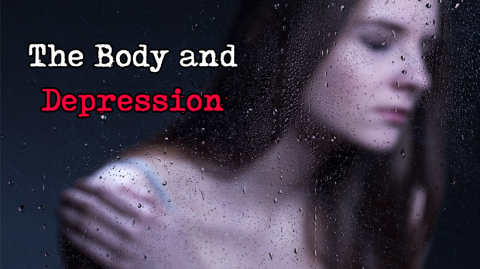
Depression is often stigmatized as a mind over matter issue, with the perception being that the afflicted person just isn’t trying hard enough to be happy, is weak-minded, or living a chosen lifestyle. It’s also overlooked as to its seriousness and prevalence. Some have even hypothesized that depression is caused by brain damage. New research on the brain and depression, however, turns the tables on such misconceptions.
The CDC has found that around eight percent of the population over 12-years-old suffers from depression, and the prevalence only rises within older age groupings. The prevalence isn’t something to take lightly considering the U.S. suicide rate rose 25% from 1999 to 2010.
One of the greatest fallacies by those unaffected by depression is that depression is a singular conscious choice. Many refer to it as a pessimistic state of being, but depression goes beyond just seeing the glass half empty and the negative aspects of life prevailing. The glass is seemingly half empty, but the kicker is that the person feels hopeless that it can ever be filled. It’s this lack of hope for a better tomorrow that makes depression so dangerous.
Depression often brings a devalued, deflated, defamed sense of self - worthlessness. There’s also a faulty perception of how the world views and accepts them. Often there’s a repetition of fear or dread of the future and/or regret or shame of the past that may manifest itself in a variety of ways, including the person’s demeanor, productivity, and engagement with life and relationships. The result is a snowballing cycle of negative thoughts breeding negative actions, which breeds more negative thoughts and more negative actions. Without intervention, each negative cycle of thoughts and actions cumulate to eventually overwhelm the individual and damage the brain, or at least that’s what new research suggests.
For years, common thought in the medical world was that depression is, at least in part, caused by brain damage. Now, research published in Molecular Psychiatry shows an understanding that its depression actually causing the brain damage, not the other way around. While previous studies have linked hypothalamus shrinkage with depression, none have been large enough to produce definitive results until now.
MRIs of 9,000 participants showed hippocampus shrinkage of around 1.24% hippocampal volume reduction in all of the 1,728 of the patients diagnosed with chronic depression. The hippocampus is located in the medial temporal lobe, with half being in the right hemisphere of the brain and half being in the left. Its roles were once thought to be limited to spatial navigation, the creation of new memories, and banking long-term memories. Researchers have now discovered another role of the hippocampus - controlling emotions.
Coauthor of the study professor Ian Hickie describes how the hippocampus’s emotional functions, depression, and even its memory functions are all connected. He says your entire sense of self is reliant upon a continual understanding of who you are within the world. Memory is more than math problems and recalling passwords; it’s also the glue that holds together how we fit into the world around us. Hickie points out previous animal research supporting his study. Such research has shown that hippocampus shrinkage in animals’ changes memories and associated behaviors. These changes result in a loss of function.
Hickie breaks down the research as it relates to humans. Depression sufferers usually have great difficulty functioning and managing daily life due to their sense of self-being off with poor confidence, self-esteem, and a lack of ego. All of this impacts memories, how they’re formed, recalled, and perceived, which thus impacts how those memories project to future placement and perception.
Beyond clinical treatment, the outlook is an important element in depression. Surrounding yourself with realistic positivity is crucial when you’re depressed. Bystanders cannot change the validity or misconception of depressive memories and current thoughts, but they can provide the realistic light that is hope for the future, hope for change, hope that the glass isn’t infinitely empty. The fact remains that depression can affect anyone. It is a non-discriminate, debilitating disease that impacts millions of lives across the globe without exclusion for any race, gender, or age. It’s beyond a single conscious decision. It’s beyond periodic sadness. It’s beyond strengths and weaknesses. And, it’s certainly not a choice made by those affected by it.